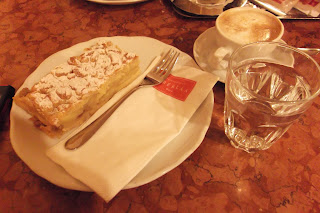Out of my country, I am an immigrant.
But in my country I am no more an immigrant!
In your country, I am an immigrant,
but in MY country YOU are an immigrant!
But what is a country.
Do all people from the same country are the same?
Do people from other countries are different from us?
Who designed those borders?
Who gave those names?
Under which logic has the world been divided into countries?
On one day a client at work shouts “for fuck's sake, is there anyone here who speaks proper German?”. She was talking to me before saying it. A co-worker tells her “what? She was talking in German to you” she said that was “shit German”. I am sorry for not being Goethe, but that's kind of the price you pay when you know more than 5 languages, you cannot know them all good, and she tells her husband “oh, immigrants”.
Immigrant? This word makes no sense. Who is an immigrant? Someone who is not in his homecountry. Ok, so what's the definition of “homecountry”? The country where I am at home? Well I felt at home in many countries! Oh, homecountry is where you were born. But I never felt home there so how can it possibly be my home-country if it never felt home to me? I didn't get a chance to decide where to get born! And what about “immigrant”, you called me immigrant cause I'm out of my homecountry, but if you ever step out of “your” country wouldn't you also be an immigrant? No one is an immigrant, cause it just depends on the point of view! I felt stranger in the city where I was born, and I felt at home in some cities where I was just staying for a short time.
Are countries a strict definition? When you walk off your country is everything so different? And when you're walking in “your” country is everything the same? Everything is taylor-made for you?
Fuck no!
And after all, immigration was my path in my studies and carrier (or at least the carrier I am trying to get). I imagine I interest myself for migrations because it is so fascinating and unfortunatelly underrated. How come do you see an immigrant like an enemy, a danger, a tornado who will destroy everything that's yours? An immigrant is just someone who's getting rich. In culture and in his mind. He gets to know new people new cultures and he learns from it...he becomes a better person.
Why are immigrants so underrated? Jealousy? Fear? The fear of the unknow is perhaps the strongest fear but why does an immigrant represent the unknown? Why should anyhow someone be different from us just because he was born/raised somewhere far from us?
Do we take for granted that people who grew up in the same place as we did are similar and friends of us, while people who did far away are complete strangers who are always weird and wrong? Why their languages/food/habits/holidays are shit if we don't even know them? I have great friends who grew up on the other side of the world, and we get along way more than so many other people who grew up in the same place. I celebrated holidays and traditions which I even though were more interesting than the ones of “my” country. And backwarts.
And who ever said “immigrants come and take our jobs and women”? If you are good enough you will get the job. Foreigner or not! And women, well perhaps they are more interested in people who are more open and cultured than you.
It is really pathetic to discriminate. Once, in “my” homecountry I met a girl who studied “our” language, and was ready to study her whole degree in this country. She was denied accomodation for not being a local (few people rent only to locals), and she was always sent to her embassy because no one at government offices spoke anything but their own language. Scared and disappointed she travelled back home. She put so much effort/money in learning “our” culture and “we” sent her away for being a “foreigner”. She loved this country and now she hates it.
Locals, should we be more open and understand that “immigrants” are interesting people who can teach us amazing things?
Immigrants, should we be understanding that unfortunatelly not everyone is smart enough to understand how to behave? Should we unfortunatelly close one eye, be exemplar and be the ones to make the first move to friendship and better integration?














